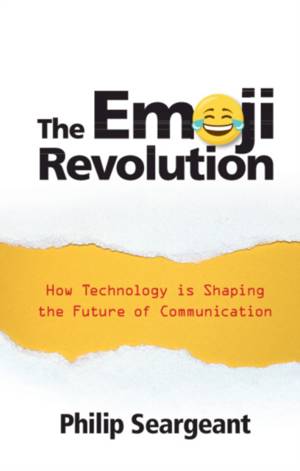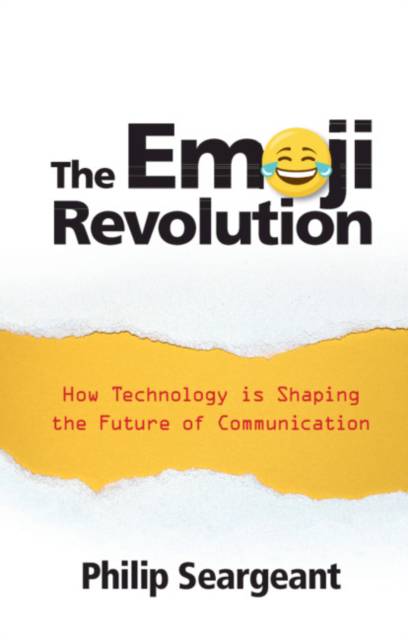
- Afhalen na 1 uur in een winkel met voorraad
- Gratis thuislevering in België vanaf € 30
- Ruim aanbod met 7 miljoen producten
- Afhalen na 1 uur in een winkel met voorraad
- Gratis thuislevering in België vanaf € 30
- Ruim aanbod met 7 miljoen producten
Zoeken
The Emoji Revolution
How Technology Is Shaping the Future of Communication
Philip Seargeant
Paperback | Engels
€ 36,45
+ 72 punten
Uitvoering
Omschrijving
Where have emoji come from? Why are they so popular? What do they tell us about the technology-enhanced state of modern society? Far from simply being an amusing set of colourful little symbols, emoji are in the front line of a revolution in the way we communicate. As a form of global, image-based communication, they're a perfect example of the ingenuity and creativity at the heart of human interaction. But they're also a parable for the way that consumerism now permeates all parts of our daily existence, taking a controlling interest even in the language we use; and of how technology is becoming ever more entangled in our everyday lives. So how will this split-identity affect the way that online communication develops? Are emoji ushering in a bold new era of empathy and emotional engagement on the internet? Or are they a first sign that we're handing over the future of human interaction to the machines?
Specificaties
Betrokkenen
- Auteur(s):
- Uitgeverij:
Inhoud
- Aantal bladzijden:
- 238
- Taal:
- Engels
Eigenschappen
- Productcode (EAN):
- 9781108721790
- Verschijningsdatum:
- 5/09/2019
- Uitvoering:
- Paperback
- Formaat:
- Trade paperback (VS)
- Afmetingen:
- 218 mm x 147 mm
- Gewicht:
- 317 g

Alleen bij Standaard Boekhandel
+ 72 punten op je klantenkaart van Standaard Boekhandel
Beoordelingen
We publiceren alleen reviews die voldoen aan de voorwaarden voor reviews. Bekijk onze voorwaarden voor reviews.











